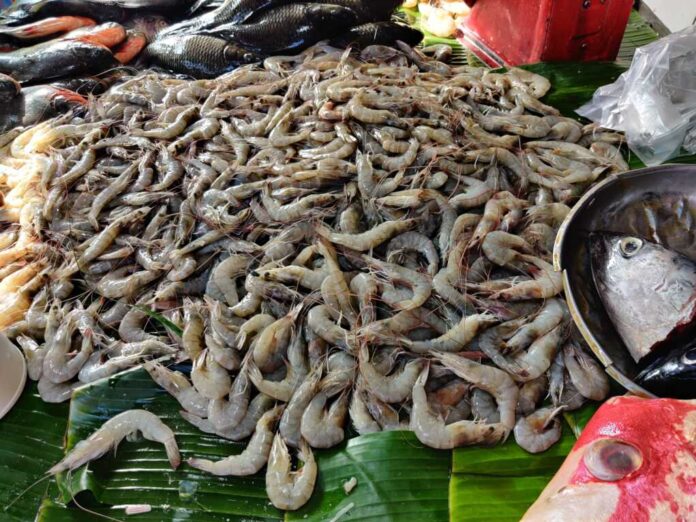
A radioactive contamination crisis involving Indonesian shrimp has triggered unprecedented FDA restrictions that threaten to devastate the livelihoods of millions of seafood workers.
Story Overview
- FDA detected Cesium-137 radiation in Indonesian shrimp at 100 times normal background levels
- Major retailers including Walmart and Kroger issued widespread recalls across multiple states
- Indonesia’s entire seafood export industry faces potential collapse affecting millions of workers
- Contamination extends beyond shrimp to Indonesian spices, suggesting broader contamination source
Contamination Discovery Exposes Screening Failures
U.S. Customs and Border Protection discovered Cesium-137 contamination in frozen shrimp shipments from Indonesian processor PT. Bahari Makmur Sejati at four major ports including Los Angeles, Houston, Miami, and Savannah. The contaminated shrimp measured 68 becquerels per kilogram, which is 100 times above normal background radiation levels. While this falls below the FDA’s intervention threshold of 1,200 becquerels per kilogram, the detection reveals concerning vulnerabilities in America’s food import screening system that could have allowed dangerous products to reach American families.
The FDA’s August 18, 2025 announcement confirmed that three batches of contaminated shrimp had already entered the marketplace under Walmart’s Great Value brand before detection. By August 19, recalls expanded rapidly as the agency scrambled to track distribution across 13 states. This timeline demonstrates how contaminated foreign products can penetrate American supply chains despite existing safety protocols, raising serious questions about the adequacy of current import inspection procedures.
Watch: Radioactive shrimp: FDA warns of shrimp from Indonesia after radioactive isotope Cesium-137 found
Regulatory Response Triggers Industry Crisis
The FDA placed BMS Foods on Import Alert 99-51, known as the “Hot List,” effectively blocking all future shipments from the company until contamination issues resolve completely. This represents one of the agency’s most severe enforcement actions, typically reserved for significant public health threats. The regulatory response expanded beyond the initial company as the FDA detected similar contamination in Indonesian spice shipments, suggesting a broader contamination issue affecting multiple food categories from the same region.
Southwind Foods issued expanded recalls on August 21, later extending to include additional distributors and major retailers like Kroger by September 26. The contaminated products reached nine states through Southwind’s distribution network: Alabama, Arizona, California, Massachusetts, Minnesota, Pennsylvania, Utah, Virginia, and Washington. This widespread distribution pattern reveals how quickly foreign contamination can spread throughout American food systems once it bypasses initial screening.
Economic Devastation Threatens Millions
Indonesia’s position as one of the world’s largest seafood exporters makes this crisis particularly devastating for millions of workers dependent on the industry. The seafood sector supports entire communities from fishing villages to processing facilities, creating a ripple effect that extends far beyond the implicated company. Indonesia’s heavy reliance on U.S. export markets amplifies the economic impact, as American import restrictions can effectively cripple entire industry segments.
The contamination crisis threatens to damage Indonesia’s seafood industry reputation permanently, potentially leading other countries to implement similar import restrictions. Enhanced radiation screening protocols and increased scrutiny of Indonesian food exports could create long-term barriers to market access. Health physicists noted that while one-time exposure poses minimal acute risk, chronic exposure could damage DNA and elevate cancer risks, providing justification for continued restrictions that could devastate Indonesian communities dependent on seafood exports.
Sources:
2025 radioactive shrimp recall – Wikipedia
Radioactive Shrimp Recall Expanded – Food Safety Magazine
More Shrimp Recalled for Possible Radioactive Contamination – Consumer Reports
FDA Advises Public Not to Eat, Sell, or Serve Certain Imported Frozen Shrimp – FDA
2025 Recalls: Frozen Shrimp Products Associated with Cesium-137 Contamination – FDA
Shrimp recalled due to possible radioactive contamination – ABC News


















